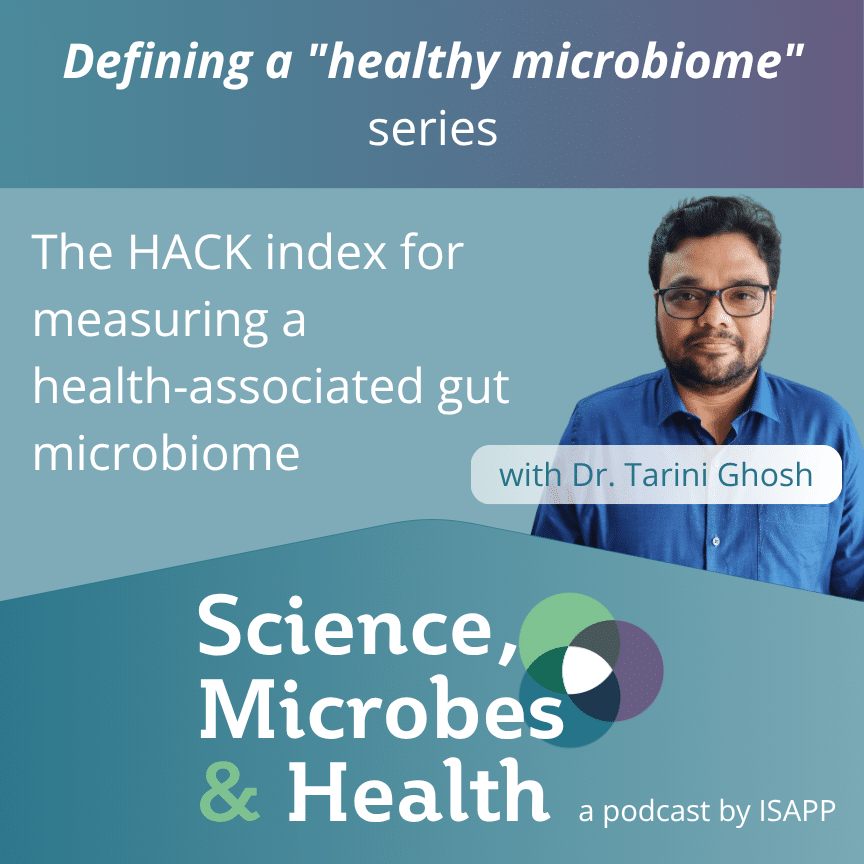The HACK index for measuring a health-associated gut microbiome, with Dr. Tarini Ghosh PhD

Listen to the Podcast:
Podcast: Play in new window | Download
Subscribe: Apple Podcasts | Spotify | RSS
This episode features computational microbiologist Dr. Tarini Ghosh PhD from Indraprastha Institute of Information Technology (Delhi, India) speaking about his recently published paper that proposes a novel Health-Associated Core Keystone (HACK) index for measuring a healthy microbiome. To create the index, the group used a huge volume of sequence data – over 201 terabytes – from more than 45,000 individuals with and without disease across different geographies. The ultimate aim is to create a universal measure for a health-associated microbiome. The HACK index is based on taxa in the gut microbiome, and consists of 3 components: (1) prevalence and connectedness in the gut microbiome of healthy individuals, (2) longitudinal stability, and (3) association with disease. Keystone taxa were generally more prevalent / abundant in the gut microbiome but not always. The group is now working to connect the identified taxa to specific functions. In the future, this index may be used as a diagnostic tool, possibly to predict a positive response in clinical trials.
Episode abbreviations and links:
- Paper outlining the HACK index: Toward a health-associated core keystone index for the human gut microbiome.
- Review on defining normal microbiome references for global populations: Normal Gut Microbiomes in Diverse Populations: Clinical Implications
About Dr. Tarini Ghosh PhD:
Dr. Tarini Shankar Ghosh leads the Microbiome Informatics group at the Department of Computational Biology at the Indraprastha Institute of Information Technology – Delhi, India. His research focuses on mining global microbiome datasets using advanced statistical methods, machine learning, and deep learning to develop predictive models and indexes that can facilitate formulation of novel microbiome-derived clinical end-points along with the development of generic and population-specific microbiome-derived diagnostics/therapeutics. His research includes identifying the global and cohort-specific markers of microbiome-resilience and disease, investigating the microbiome taxa associated with response to different therapies and cross-body-site microbiome associations.
Sign up for our monthly newsletter
Follow us on LinkedIn, Bluesky, X, Facebook, Instagram, Threads